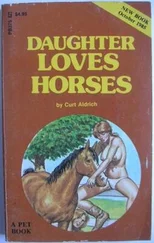A deep longing for the real ownership of that which had already taken on familiar lines and an obstinacy within him, as well as an intuitive dislike of the young stranger’s condescending tones—all of these feelings, which could not take the decision calmly, spurred him on.
Suddenly he turned and in that light Indian-footed way of his strode back toward the east.
The moon came up, yellow as a prairie cowslip. Dew settled clammily on the coarse grass so that an odor of crushed moist herbage penetrated Wayne Lockwood’s nostrils and walking was more difficult for the wetness. Sometimes in his long steady strides he flushed out a bevy of startled prairie-chickens. Wolves howled in the distance. And once he sighted a long, lean, pointed-nosed figure silhouetted against the night sky.
The moon slipped to his back, paled in the gray dawn. Ribbons of pink and mauve and gold shot up over the earth’s rim. Prairie larks sprang from the diamond-tipped grass and flew singing into the sun. At a tiny stream he threw himself down on its bank, buried his face in its clear depths, and went on refreshed by the coldness of the water.
The Wapsipinicon was too high for crossing anywhere except at a safe ford, so he headed straight for the little settlement of Independence. And now other travelers were on their way for the day. From the east came a covered wagon drawn by three yoke of oxen, the driver walking at their side, occasionally snapping his black-snake high over their broad backs and swaying heads with horns brass-tipped and shining in the morning sun. The man’s stentorian tones “Hey . . . Hey” came across to him.
For unlike the usual stopping and exchanging of information on the sparsely traveled prairies, Wayne kept straight to his self-chosen path a quarter of a mile north of the trail, scarcely glancing toward the travelers.
In the early afternoon he had crossed the “Wapsie” and eaten at the log tavern. Miles beyond, his young limbs sent up their first protesting so that he threw himself down on the open prairie, face on his arm for a moment of relief. Lying so close to the grasses magnified them, distorted the slim stalks so that he appeared to be looking into a forest under which twined a great undergrowth of giant wild morning-glories, lupines, and prairie roses. Lying there, the scarcely perceptible swaying of the miniature tree trunks close to his arm caught his eye and he sprang to his feet as a long, loathsome thing slipped, belly-flat, through the grass. Suddenly he had no stomach for staying, and went on at once.
On to the east, then, all the afternoon. And all night again through the wet clinging grass under that huge cowslip of a moon, with the prairie-chickens flushed from their coverts and a lone owl hooting and another lean gray form silhouetted against the night sky. Skirting swamps, fording streams, putting miles of that moon-drenched sea of grass behind him!
Day again! And not yet had the bay team appeared on the trail to overtake him. And not yet had a traveler with whom he might ride come by his way to the east. Like the sun and the moon themselves, the few travelers were moving always to the west.
It was late afternoon now with shadows lying lightly on the prairie like phantom boats on a mystic sea. By his calculations and a landmark of remembered swales, Dubuque must be not very far away. Glancing over his shoulder in that constant watch for travelers, he saw movement on the trail. Every faculty alert, he watched the oncoming speck until that moment when he could make out whether it was to be some one with whom he might ride or the men whom he wished to avoid. His tired eyes deceived him for a time, made out that it was a lone horseman, suddenly could no longer keep the truth from him. For over there to the right, on the trail going eastward, trotted the pair of bays with the shining buggy.
And now disappointment and despair struck him like a spell of illness. All of his spirit and courage dropped away as gas from the balloon he had seen at the fair. This wild-goose chase seemed the height of stupidity. Why had he done it? Why had he let an obstinacy and dislike of that young stranger’s manner lead him into this foolish procedure? With practically all of Iowa from which to choose, he had clung with silly tenacity to the one section. Disgust was enveloping him as he stood and watched the dark speck disappear into the east.
Fatigue was conquering him. Augmented by that feeling of despair and disappointment, his mind could scarcely make those young limbs of his obey. But some dogged determination kept it the master. From now on it was as though there were conflict between the two—the driving brain and lagging body—as though the one lashed the black-snake, and the other, oxen-like, could do naught but sluggishly obey. The mind and the body fought for supremacy, but it was as though he himself were only the physical, some other person the mental.
“No . . . I can’t go farther.”
“Go on, you coward.”
“But it’s too late.”
“It’s never too late to try.”
“They’ll get there long before I do.”
“They might get there after the office is closed, and stay all night at a tavern. Then you would have equal chances.”
All through the night, with his body protesting and his mind scourging, he plodded on. Through the rolling timbered hills, now, he trudged in the paling moonlight and the last mile of the trail into Dubuque.
His eyeballs were as hot as though sands from the Deer Run Creek bed were in them. When he stopped walking his flesh quivered and every muscle of his body twitched spasmodically, like a thin sawblade vibrating for a moment after the woodcutter has finished using it.
And now he was passing down a street of the town perched there on the cliffs above the Mississippi, named for Julien Dubuque, the French-Canadian who had been the first white man to settle permanently on Iowa soil.
He was too weary to give much thought to the town, and its founding, scarcely remembered his excitement on arriving here beyond the Mississippi a week ago and his interest in the story of Julien Dubuque’s adventurous career, how by flattery and wiles and perhaps an understanding of the Indian character, Dubuque had obtained from them the lead mines hereabout. Well, one need not waste any sympathy over the affair. Julien Dubuque had been dead forty years—buried by the Indians here near Little Fox Village. And only the year before, the long-drawn-out trial over the ownership of the mines had been decided—they had reverted to the Indians.
Only a few people were astir: some making ready to pull out in the gray dawn in their wagons, a shopkeeper opening a little store, the ferryman starting the day’s first crossing to the eastern side of the Mississippi.
There it was—the government land-office where he had obtained all his information only a week before. It was too early for it to be open. But how long had it stayed open the night before? Had the high-stepping bays arrived before the hour of its closing?
With one long exhalation of breath he dropped on the wooden step, pillowed his head in his arm, and slipped into the oblivion of sleep.
From somewhere, in time, came the blurred consciousness of activity around him, and a vague realization that his body was being shaken vigorously. Even then he could scarcely reassemble his scattered faculties. The sun was in his eyes. A man was bending over him saying something that sounded like a half-angry, half-amused: “If you want this office open to-day . . .”
He was fully awake now, and jumped lithely to his feet. A line of a dozen land-seekers stretched behind him, all laughing good-naturedly at the blond young giant who had filled the step and threshold of the building with his bulk.
Читать дальше












